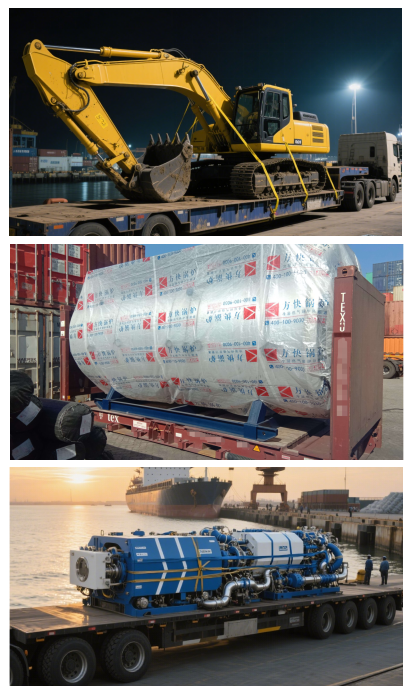Specialized shipping containers in maritime transport are specifically designed to meet the unique transportation needs of certain types of cargo. These include, but are not limited to, open top containers (ideal for oversized cargo that needs to be loaded from the top), flat rack containers (suitable for heavy and oversized loads), reefer containers (designed to maintain a consistent temperature for perishable items), and tank containers (used for liquids or gases, including chemicals). Their design takes into account the safety of the cargo and transportation efficiency, ensuring that even the most specialized goods can reach their destination safely and efficiently.
For specific types of cargo, even general purpose containers (GP containers) have many special requirements that must be adhered to ensure the safety of the transportation process and the integrity of the goods. For instance, coiled steel, due to its weight and shape, requires careful consideration during loading.
Specialized shipping containers are mainly used for transporting goods that cannot be carried using standard containers due to their special characteristics such as size, weight, temperature sensitivity, etc. Here are some scenarios and types of cargo that typically require specialized containers:
Oversized or Heavy Cargo: Such as large machinery, vehicles, heavy equipment, etc., which may require open top or flat rack containers due to their large volume or excessive weight. Temperature-sensitive Cargo: Goods that need to be stored at specific temperatures, like food, medicine, and chemicals, will use reefer containers to ensure the required temperature is maintained throughout the journey. Liquid or Gas Cargo: Products like petroleum, liquefied natural gas, alcoholic beverages, etc., usually require tank containers for safe transport. Fragile or High-value Items: Including artworks, precision instruments, etc., these goods may need specially reinforced containers or additional protective measures to prevent damage. Hazardous Materials: Certain chemicals or other hazardous materials need to be transported in specially marked containers that comply with international regulations for dangerous goods transportation. Coil or Tubular Cargo: Such as steel coils and pipes, which may require special securing methods and support structures to ensure safe transport. |  |
In conclusion, any goods with special requirements regarding size, shape, weight, temperature needs, or safety considerations might necessitate the use of specialized shipping containers. Selecting the appropriate container ensures the safe transport of goods while also improving logistics efficiency.